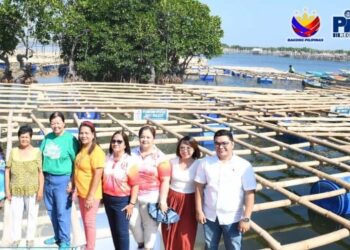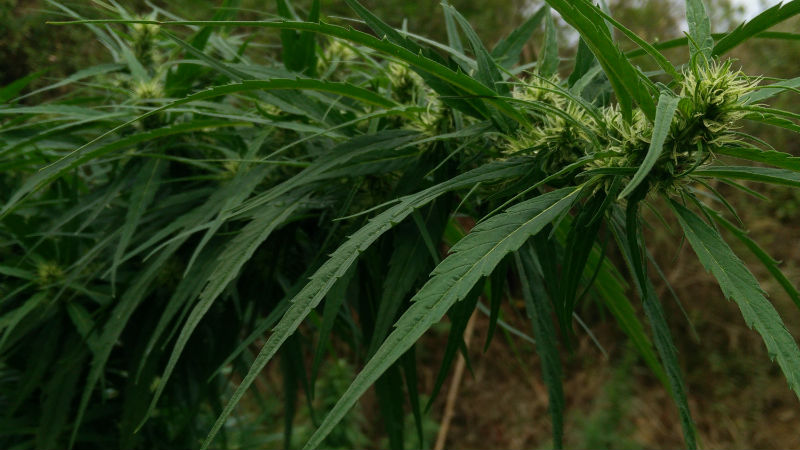TUBA, Benguet – Philex Mining Corp. has reassured the outlying communities at its Padcal operations in this province that it has implemented and will continue to distribute fairly its socioeconomic projects among them, as both parties agreed to engage the services of an independent expert to look into their other most pressing concerns like water sources.
This develops as officials of LGU or local government units, leaders of the indigenous peoples (IPs), and other residents in the host and neighboring villages met recently with Philex Mining officials led by Victor Francisco, VP for Environment and Community Relations, and ComRel Manager Aurora Dolipas, as well as with some officials of the Mines and Geosciences Bureau (MGB) for a dialogue.
Held Friday, March 10, at the offices of MGB, an agency under the Department of Environment and Natural Resources (DENR) that regulates the mining industry, in Baguio City, the discussion focused on Philex Mining’s Social Development and Management Program (SDMP) and other concerns including the alleged depletion of water sources in a host village.
“I assure you that we will continue to implement a fair distribution of the projects—just as what we have been doing—that are intended for our host and neighboring communities,” Dolipas told IP leaders and other clan representatives from the host barangays of Camp 3, in Tuba, and Ampucao, in Itogon; and the neighboring barangays of Camp 1 and Ansagan (Tuba) and Dalupirip (Itogon).
With a total population of more than 27,000 in 7,896 households, these barangays are collectively called outlying communities.
Felizardo Gacad, chief of Mining, Environment and Safety Division at MGB-CAR or Cordillera Administrative Region, who hosted and facilitated the dialogue, vouched for Philex Mining’s position that almost all SDMP projects are identified by the outlying communities themselves during consultations in their respective areas.
“Questions on the fairness of distribution should already be raised at this stage, not on any other stage, especially the stage when these projects are already being implemented,” Philex Mining said in a response projected on a big screen for all to see, following complaints of alleged selective implementation of a number of social projects.
The company added that most signatories to the complaints filed before some government agencies late last year have been participating in community consultations regarding the implementation of SDMP.
In fact, it revealed, Asia Gabino, one of the prime movers of the complaints, had been a recipient or beneficiary of some SDMP-funded projects. From Jan. 28, 2015 to Jan. 1, 2016 alone, she and her husband, Marlon, implemented through contracts with Philex Mining some SDMP projects in their area—Sitio Torre, Brgy. Camp 3—to the tune of P9.34 million.
Eddie Amuasen, chairman of Brgy. Ampucao, got the support of all parties when he suggested that a third-party expert be engaged to look into complaints concerning water sources in Brgy. Camp 3, allegedly owing to the ongoing drilling conducted by Philex Mining’s exploration team in Sitio Alang.
While the hydrogeologist Mario Sandoval, of the Aqua-Dyne Technological Service, Inc., debunked the alleged correlation between the ongoing drilling and water-supply depletion, Philex Mining officials agreed with Amuasen’s suggestion, which was in response to some reactions from the floor questioning Sandoval’s credibility as he was invited to talk by the MGB alone.
This despite the miner’s study pointing at an increasing number of households and farmers in the areas concerned. “The population in the communities surrounding the company’s Padcal operations continues to increase, a factor contributory to water depletion as more households now share natural resources as compared with the number of households before.”
Also in a written response projected on the big screen, the company added, “A significant rise in the number of farmers in these communities is noticeable. Also, other activities such as kaingin [slash-and-burn agriculture], conversion of forested areas into agricultural lands, etc.”
Philex Mining is seen by many stakeholders, including private investors, government regulators, and public officials, as a responsible miner that has been humanizing its approach to the implementation of SDMP and other environmental projects under its program on corporate social responsibility, as well as its adherence to the state-mandated industry regulations.
Manuel Agcaoili, SVP at Philex Mining and resident manager of Padcal, has said the company would start realigning funds for community development to include villages other than the outlying communities but within the host towns of Tuba and Itogon. The two towns have thrown their support to this move, saying other depressed barangays are in dire need of development.
Earlier, Dolipas said the company allotted P110.48 million for the various projects on social development, information dissemination, and research for the improvement of the mining industry. This means a total budget allocation of P730.48 million for the said projects between 2003 and 2017.
She has explained that this year’s budget allocations for community development and other projects are equivalent to 1.5 percent of the company’s total operating expenses in 2016, with SDMP getting 75 percent while 15 percent goes to Information Education Communications (IEC) campaign, and 10 percent for the DMTG or Development of Mining Technology and Geosciences.
Between 2011 and 2015, Philex Mining fulfilled payment of P10.12 billion toward the government coffers in the form of regular and mining-related taxes. Since 2011, its gold-and-copper operations, in Padcal, contributed 100 percent of the required regular taxes amounting to P6.6 billion and another P3.5 billion in mining-related taxes.
By HENT














